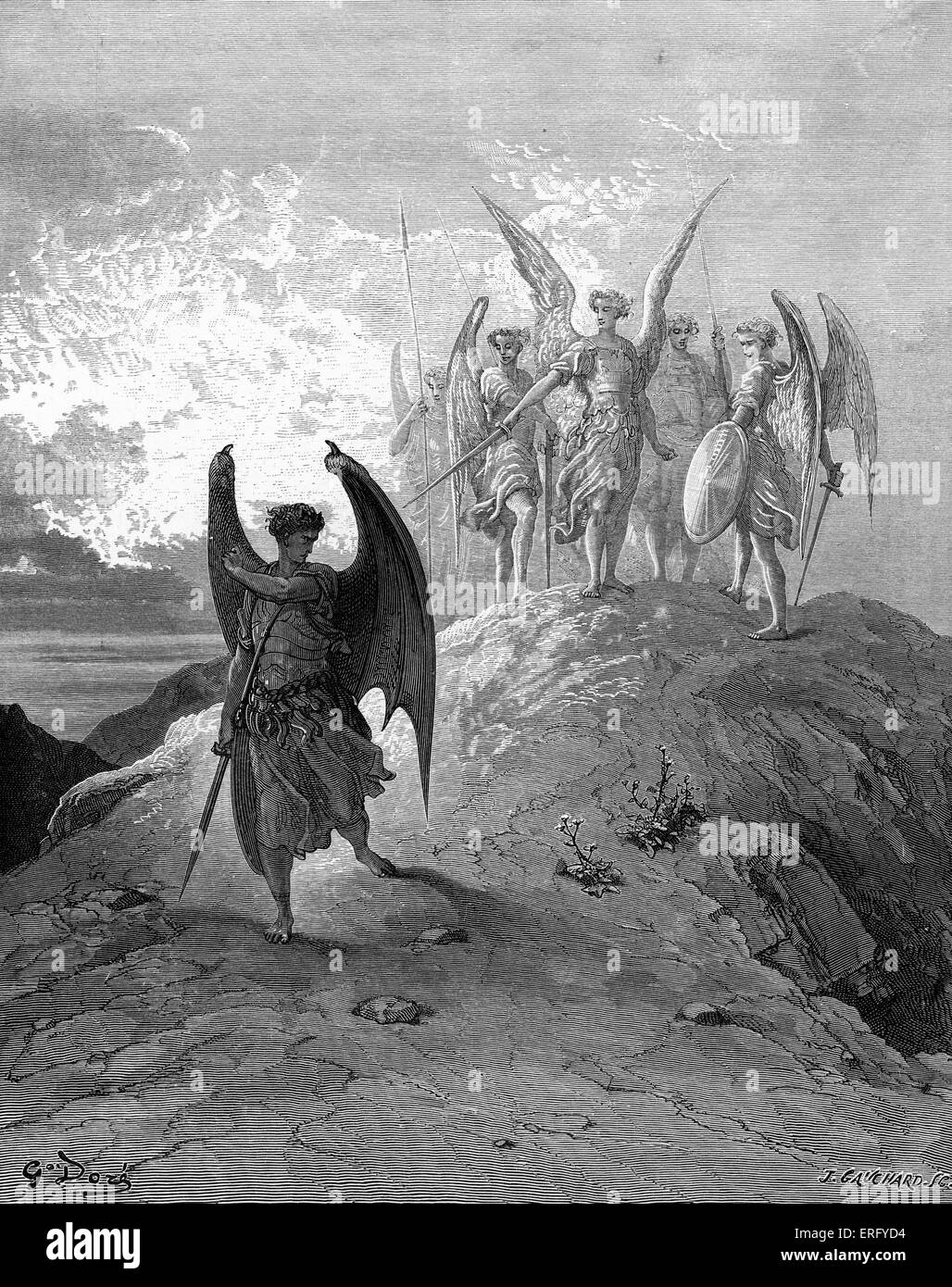
Though you’re probably wondering, aren’t we supposed to hate this guy? Well, no, actually. People are really out there vibing to his pain. This is evident in the world of sound, where the fascination with the fallen is found in Mumford and Sons’ song “Darkness Visible” dedicated to an excerpt from Book 1 in Paradise Lost, where Satan being punished for defying God is described. Okay, maybe a little, but it is no surprise to see that many have taken inspiration from the Miltonic blueprint for Satan. The television show Lucifer goes further, casting a tall, semi-attractive (don’t let my dad read this) white man, as a conflicted, crime-solving protagonist, who gives up his hedonistic ways and slowly becomes more human.īut what does Milton say? Funnily enough, the apples haven’t fallen THAT far from the tree. The Simpsons say he’s a red faced, black horned dude with a six-pack. Satan features often, and quite frequently, in popular culture. And every day… we stray further away from God’s light. Fear has dwindled into something new, something sexier. However, where folks once trembled at the thought of the king of Hell reigning over them, now that relationship seems to have changed. This act of defiance secured Satan a hateful haven in Hell, and he has been God’s nemesis since. 263) Satan exclaimed, standing tall and proud, crowning himself with dominion over the fellow-fallen who followed him onto the path of revolt. "Better to reign in Hell than serve in Heaven" (Book I, l. WHO is he? WHAT is he? Well, I mean, he’s a pretty big deal, and we’ve all heard of him, but let’s give the devil his due.Īn architect of misery, the once loved and forever fallen angel, failed to yield and took up arms against God. So, in this light-hearted, banter-heavy blog, I thought I’d introduce you to one of the epic’s main characters: Satan. I must take this opportunity to say that I am very sincerely sorry for the absolute chaos that I predict it unleashed on your brains. Since then, a few of you were bold enough to buy yourselves a copy of the epic poem. The liberty Milton urges them to seek is not the liberty found in hell.If you recall, a few months ago I wrote an introductory blog for my research on modern day readers of John Milton’s Paradise Lost (you can read it here). Milton’s readers must be careful not to fall–like Blake– into the seductive trap Satan’s arguments set for them.

In the context of the poem, however, they demonstrate instead how misdirected Satan’s pride and ambition really are. Satan’s insistence that he can transform heaven to hell and hell to heaven merely by his state of mind, and his assertion that it is “better to reign in hell than serve in heaven” sound like glorious cries for liberty when taken out of context. While Milton, and others, may have felt that this kind of rebellion against earthly authority was acceptable, such rebellion against God–the only monarch whose divine right to rule could be thought of as incontestable–is sheerest folly. The problem, of course, is that the authority against which Satan is declaring his independence and the ruler whom he declines to serve is God. To reign is worth ambition, though in hell īetter to reign in hell than serve in heav’n. Here we may reign secure, and in my choice Here for his envy, will not drive us hence:

We shall be free: th’Almighty hath not built Whom thunder hath made greater? Here at least What matter where, if I be still the same,Īnd what I should be, all but less than he This passage from one of Satan’s speeches in Paradise Lost contains two of the poem’s most quoted lines, and neatly sums up the kind of bold argumentation that attracted readers like Blake.Ĭan make a heav’n of hell, a hell of heav’n. For them, Satan’s arguments for independence and freedom held a great attraction. The poet William Blake famously argued that, in Paradise Lost, John Milton was “of the Devil’s party without knowing it.” Satan gets most of the best lines in the poem, is arguably a more exciting character than any of the heavenly occupants or newly created humans, and he had a strong appeal to the idealistic Romanticism ushered in by Blake and brought to a peak by poets like Byron and Shelly. Found in The Poetical Works of John Milton


 0 kommentar(er)
0 kommentar(er)
